|
In Sisters of the Yam: Black Women and Self-Recovery, bell hooks wrote, “Collective black self-recovery takes place when we begin to renew our relationship to the earth, when we remember the way of or ancestors….Living in modern society, without a sense of history, it has been easy for folks to forget that black people were first and foremost a people of the land, farmers.” Persons, who are still farming in various states across the United States, are carrying on the fight for economic and civil rights for land-based African American people. This fight began during days of slavery. In 1920, African Americans owned nearly 15 million acres of farmland. Due to racism, violence, and massive migration from the rural South to the North have caused a steady decline in the number of Black farmers. Institutional racism in agricultural policies of the USDA has played a major role in the decline of Black farmers. By 2007, African American farmers numbered about one in seventy, together owning only 4.2 million acres. One of the most impressive contemporary examples of an organization, that grew out of the civil rights movement, that helped organize and support Black and small farmers in rural communities, is the Federation of Southern Cooperatives. The federation formed in 1967 and today have more than 100 coops in its membership across the South in sixteen states. Other organizations like the National Black Farmers Association, the Black Farmers and Agriculturalists Association, the Land Loss Prevention Project, along with the Federation of Southern Cooperatives have been challenging racism in agricultural policy through legal action.
There is on the horizon, a fast-growing movement of African Americans reclaiming their connection to their urban land and their food. This is being done as part of food justice and food sovereignty movements. People’s Grocery and Mo’ Better Food in Oakland, Growing Power, Rooted in Community, Detroit Black Community Food Security Network, and many others are organizing with farmers and connecting African American growers and consumers. The work of these groups includes youth programs and urban gardening in areas where access to healthy, affordable food is limited, which is the case in many low-income and people of color communities. More importantly, these groups, particularly the Detroit Black Community Food Security Network, are working for communities of color to have democratic control over their own food systems. Raising awareness, relative to the ways that African American communities and communities of color have been sidelined with the food movement itself, is one of these many organizations’ major roles. It is critical that various groups involved, that are enabling communities of color gain democratic control over their food systems, continue to educate and organize, nation-wide, on structural racism as it impacts health, farming, food and land. These organizations have shown that they are determined and committed to breaking and knocking down barriers to food production and food access. There is a need to have persons and organizations join the world-wide movement for food sovereignty in their own communities. This will afford citizen control over food and agriculture to exist globally. Achieving racial justice in the food systems is not the sole burden of African Americans but a people’s clarion call all over the earth! Raising awareness of systemic disparities and working together to end them is a God’s responsibility of humankind’s survival. Dr. Betty Whitted Holley is the Director for the Master of Divinity Degree Program and Associate Professor of Environmental Ethics & African American Religious Studies at Payne Theological Seminary. She also serves on the board of Creation Justice Ministries. 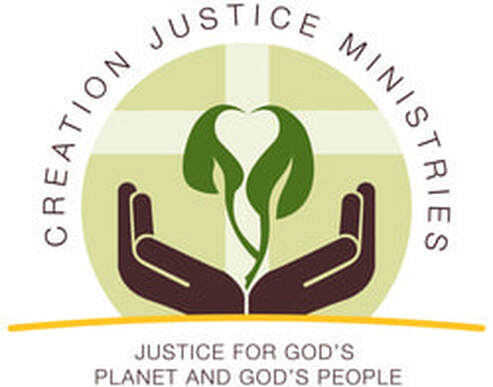 February 27, 2020 Creation Justice Ministries applauds the historic Environmental Justice for All Act put forward today by US House of Representatives Natural Resources Committee Chair Raúl M. Grijalva (D-Ariz.) and Rep. A. Donald McEachin (D-Va.). We know that we are entrusted by God with care for creation and love of neighbor. The transformative change envisioned by this bill is a crucial step forward as a nation to better embody and live out both principles. We especially affirm the following aspects of the Environmental Justice for All Act:
Creation Justice Ministries affirms the dignity of all God’s children, and therefore we lift up our moral imperative to seek environmental justice for people of every race, economic status, gender, ethnicity, sexual orientation or religious affiliation. Creation Justice Ministries represents the creation care policies of 38 Christian traditions, including Baptist, mainline Protestant, Historically Black, Peace, and Orthodox communions. Learn more at www.creationjustice.org Contact: Shantha Ready Alonso, Executive Director 202-618-2501 (mobile) Good evening, members of the Council on Environmental Quality.
My name is Bishop Carroll Baltimore. I am Vice President of Creation Justice Ministries representing the policies of more than two dozen Christian denominations that join together to protect, restore, and rightly share God's creation. Through our membership, we serve approximately 100,000 churches and 35 million people. We have grave moral concerns regarding potential changes to the National Environmental Policy Act (NEPA). Proposed revisions to NEPA are inconsistent with NEPA’s central purposes. Among those purposes are three that people of faith hold with special regard:
These purposes of NEPA mirror Christian community values embodied in Jesus’ Great Commandment: to love the Lord God with all your heart, soul, and mind, and to love your neighbor as yourself. By loving our Creator God, we show respect for what God has made. We are entrusted with the care of creation for our short lifetimes, and to ensure the gifts of God’s creation can sustain life for our children and generations to come. NEPA helps our society evaluate how development will impact God’s creation. The NEPA process gives us, on a societal level, an opportunity to “love your neighbor as yourself.” It requires project planners to listen to those who could be most impacted by a proposed project, including the most vulnerable. If a project will hurt neighbors by making it hard for them to breathe, drink safe water, grow food, catch fish, or freely practice their religious faith, it is our shared moral responsibility to show love for our neighbors by preventing harm from a project. As Christian communities, we often find ourselves on the front lines of response to emergencies. We rally resources with compassion to respond to devastating circumstances. Some of the most devastating emergencies in our recent ministry are related to short-circuiting or undermining of the NEPA process. April 20, 2020 will mark 10 years since the devastating Deepwater Horizon oil spill disaster. BP and other oil companies developing offshore drilling sites in the Gulf of Mexico were exempt from standard NEPA planning processes. In its wake, we ministered to fisherman families not only seeking new ways to support themselves, but also devastated by the loss of identity after generations of family business out in the midst of God’s magnificent marine creation in the Gulf. Now, in addition to the Trump Administration’s proposals to expand offshore drilling, this proposal to weaken NEPA means offshore drilling can proceed with little to no review. It would limit the information the government has to evaluate the impact on endangered marine mammals, coral reefs, and coastal ecosystem protection and restoration. Ten years later, have we learned nothing from the suffering from Deepwater Horizon? We have also witnessed the devastation of Native American burial grounds and sacred sites as a result of an ignored or undermined NEPA process. As Christians, we stand with people of all spiritual traditions to defend their religious freedom. Right now, the wall construction area on the US-Mexico border is a virtually lawless zone where NEPA requirements are waived. As a result, the Tohono O’Odham Tribe burial grounds are being bulldozed this month. Chairman of the Tohono O’Odham Ned Norris said, “There is no difference between what they have done here and imagine someone coming with a bulldozer through Arlington National Cemetery.” Additional sites sacred to the tribe are under immediate threat as construction continues. Some religious leader delegations have gone to the border to witness this tragedy, and call on Congress to intervene. This feels like a repetition of just a few years ago, when the Standing Rock Sioux Tribe watched with horror as their sacred burial grounds were bulldozed to make way for the Dakota Access Pipeline. Faith communities organized to send camp supplies such as firewood, and provide peaceful public support. Just when we thought the NEPA worked to prevent any further damage from proceeding to the river they depend on for bodily and spiritual sustenance, the Trump Administration overrode the result. We were deeply troubled by the expedited review process to drill in the Arctic National Wildlife Refuge, and its opening for leasing. The coastal plain of the Refuge, which is the site of the Gwich’in creation story, and is what they call “the sacred place where life begins.” If we are to follow Jesus’ Great Commandment, we need structures in place to respect what God has made and to show our neighbors love. Any proposed NEPA changes should enhance our ability as a society to live in the spirit of Jesus’ Great Commandment, not undermine, expedite, or exempt anyone from it. 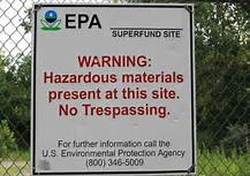 Saturday, September 23, people of faith gathered at 11:30am at John Calvin Presbyterian Church in Bridgeton, Missouri to learn about some of the most wounded parts of God's creation in the greater St. Louis area. We gathered with urgency to learn, pray, and call for action to protect our communities' health and safety. While Environmental Protection Agency (EPA) Administrator Scott Pruitt has said that cleaning up toxic Superfund sites is one of his top priorities, the Trump Administration's proposed budget would cut the EPA's Superfund remediation budget by more than 30 percent. Failure to prioritize resources for cleaning up toxic messes has had devastating impacts on our drinking water, air, and communities' health. According to the landmark Toxic Waste and Race study by the United Church of Christ, communities of color bear an unjust burden of having toxic sites nearby, contributing to racial disparities in health problems such as asthma and cancer. If we don't invest in cleaning up now, matters will only get worse. This event was one in a series. See information about Superfund Prayer Tours in Dayton, Ohio on September 24 and Philadelphia, Pennsylvania on September 30. This blog post was last updated on September 25, 2017. The tour began with a lunch briefing on Superfund sites in the St. Louis area. We heard remarks and were led in prayer by several local community leaders, and we visited the WestLake Superfund site for prayer and reflection. We especially held in prayer those who are suffering cancer related to their exposure to environmental toxins. Participants in the event included religious sisters, clergy, seminarians, students, local community members, and people who work at or near WestLake Landfill. This prayer event highlighted the need to protect communities from toxic pollution, and we urge Congress to fully fund the EPA and its Superfund Program. SPEAKERS AND PRAYER LEADERS 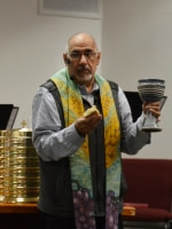 The Rev. Dr. John Shear has been the pastor of JCPC for 14 years. Prior to that he served two other churches in the St. Louis Area. He has a BA in Political Science from the University of Missouri St. Louis and both an MDIV and DMIN from Eden Theological Seminary. Before his work in direct ministry, Pastor John served as an elected official in St. Louis County, representing one-seventh of the county. His district happened to include those sites effected by radioactive contamination in the North County Area and as a County Councilman he worked to get the Federal Government off the idea of building a storage bunker in North County and instead encapsulating this contamination for shipment to the rock burial in the western states. Rev. Shear is married to Rev. Jackie Havis-Shear, an ordained minister in the United Methodist Church. They have a blended family of six children, five grandchildren, one cat and two dogs. 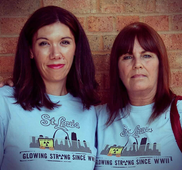 Dawn Chapman (pictured left) is a mother of three special needs children and co-founder of Just Moms STL, to fight for environmental justice and downwinder status. Just Moms wants the complete removal of radiation from the West Lake landfill and for the EPA to take responsibility and buy out families that live one mile from the perimeter of the landfill. Dawn wants to see a safe and permanent clean up of radiation from the West Lake Landfill. Karen Nickel (pictured right) is a wife, mother and grandmother doing everything she can to protect her children and community from radioactive waste. She is the founder of the the West Lake Landfill Facebook group, and Co-founder of Just Moms STL. Karen grew up exposed to the radioactive Coldwater Creek site, and for the past twenty years, she has lived 1.8 miles away from the West Lake – Bridgeton Landfill Superfund Site. For Karen, working with Just Moms is what “SHE HAS TO BE” doing to protect her family and future generations. 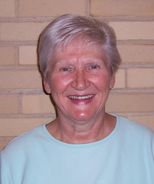 Sister Corlita Bonnarens, RSM is a native St. Louisan and a Sister of Mercy. She graduated with an MA degree from the Institute in Creation Centered Spirituality, and also has an MA degree in Art. She has ministered for over 30 years at Mercy Center in St. Louis, inviting people in retreats & workshops to integrate art, spirituality and justice with creation through praying and creating with clay & watercolor experiences. Sr. Corlita has created 25 watercolor images that depict sacred moments of the Universe that are in packets for use in the ritual of a Cosmic Walk. She is artist, teacher, spiritual director and ecologist. She has initiated the planting of over 100 trees on the grounds of Mercy Center, planting a pollinator garden of native wildflowers on 5 acres of ground, as well as inviting 2 beekeepers to install beehives at Mercy Center. Sr. Corlita is a founding member of the Intercommunity Ecological Council of Women Religious in St. Louis, MO. 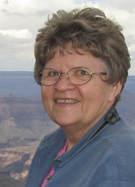 Sister Jeanne Derer, FSM is a Franciscan Sister of Mary residing in St. Louis, MO. She is an artist and an advocate for our common home and our common good. She has been faithfully co-organizing prayer vigils near the WestLake Landfill Superfund site every second and fourth Wednesday of every month.  Jennifer Reyes-Lay is a board member for Creation Justice Ministries, representing the Ecumenical Catholic Communion. She serves as Assistant Director for the Congregational Justice, Peace, and Integrity of Creation Office of the Sisters of Charity of the Incarnate Word. She is also a student at Eden Theological Seminary. LEARN ABOUT A FEW OF THE SUPERFUND SITES NEAR ST. LOUIS, MO
Check the EPA website and map for Superfund, brownfield, etc. at https://www.epa.gov/cleanups/cleanups-my-community WestLake Landfill Superfund Site The Big River Mine Tailings/St. Joe Minerals Corp. Site By: Bishop David Bailey, Episcopal Diocese of Navajoland While it feels more and more like we’re living in important and historic times, it can also be challenging to keep pace with today’s news. For instance, in light of other scandals roiling Washington, parts of President Trump’s recently-released budget proposal have flown under the radar. Yet, we should pay close attention to these details. They could have huge implications for people across the United States and the world – including the Gwich’in people of Alaska’s Arctic National Wildlife Refuge. For tens of thousands of years, the Gwich’in have been faithful stewards to the Arctic Refuge’s Coastal Plains region. For all those millennia, they’ve relied on the Porcupine caribou that migrate there each spring – both for sustenance and for their spiritual well-being. The caribou and the Gwich’in are so intertwined that their tradition holds that they share a piece of each other’s heart. President Trump’s budget proposal is the latest in a long line that have tried to open the Gwich’in’s home to petrochemical companies that would exploit the potential oil and gas that might lie beneath the earth. There’s no certainty that the profits these companies seek can be found. However, studies have shown conclusively that discovering those answers would permanently disrupt the caribou’s migration, dwindle their population, and ruin the only way of life the Gwich’in have ever known. The Episcopal Church has long been opposed to exploiting the Arctic Refuge. Our concern for and stewardship of God’s creation calls us to this position. What’s more, 9 of 10 Gwich’in are my brothers and sisters, of one Body of Christ, (indeed, of one shared heart) in the Episcopal Church. They know the refuge’s future is their future, and we believe the Gwich’in’s future is ours. That’s why I urge our Senators to reject President Trump’s proposal to exploit these lands and ruin my Gwich’in brothers’ and sisters’ home. Of course, the caribou and the Gwich’in aren’t alone on the coastal plains. It’s also the migratory home for millions of birds from across the country – including Arizona – and around the world. It’s one of the few places where America’s polar bears give birth to their young. This pristine, untouched wilderness is among the last of its kind in the country, or on the planet. You can even drink fresh, clear water from its streams. All of that is in peril again, and we owe it to our Gwich’in neighbors and to ourselves to stand firm. In the nearly six decades since the Arctic Refuge was first designated, the Gwich’in have beaten back multiple attempts to ruin what they call “the sacred place where life begins.” Washington wasn’t immune to scandal then, and it certainly isn’t now. So, we can’t let the latest headline distract us from treating our neighbors with the same dignity and respect with which we wish to be treated – perhaps, even, to love them as we love ourselves. If someone was coming to ruin my way of life, or to destroy our community’s homes, I know my fellow Arizonans would stand by us. I ask you now to stand with my Gwich’in brothers and sisters, and tell Senators connected to Navajoland, including Senators McCain and Flake of Arizona, Senators Udall and Heinrich of New Mexico, as well as Senators Hatch and Lee of Utah, to reject President Trump’s plan to exploit the Arctic Refuge. Long after the latest scandals have subsided in Washington, the caribou will return to the plains region and the Gwich’in’s age-old rhythms will begin anew – but only if we stand up and speak out now for our brothers and sisters, and the sacred place where their life begins.
The Rt. Rev. David Bailey is the Episcopal Bishop of Navajoland. Prior to his 2010 arrival in Navajoland, Bishop Bailey was the Rector of St. Stephens Parish in Phoenix, AZ. There he developed a 60-bed retreat center which, at times, would provide free shelter to Navajo families whom would travel to the city for advanced medical treatment. He chaired Native American Ministries in the Diocese of Arizona, held a position in Coalition 14 and thus created a bond with the Episcopal Church in Navajoland. In 1994, upon the Presiding Bishop’s Appointment, Dave assisted Navajoland Bishop Steven Plummer in an administrative capacity. He would work with Bishop Plummer for 5-6 weeks a year. In his down time, Bishop Dave’s interests include reading, golf, hiking and participating in 5k’s.
June 2, 2017 was a day to remember of round-table meetings with government decision-makers and Indigenous leaders from Christian communities. The aim of the meetings was to bring Indigenous and Christian perspectives in support of Bears Ears National Monument and the Bears Ears Commission, and deliver a letter they all helped circulate, calling on Secretary Zinke to protect Bears Ears National Monument. The day began with prayers and inspirational talks for guidance and direction, to reflect God’s will and voice. These voices stand firm to the premise that diversity and inclusion are central to environmental integrity, preservation, and justice, with the unique responsibility of humans in caring all God’s creation. Leaders in attendance were: Rev. Richard Silversmith, a Navajo Pastor of the Indian Christian Center in Denver; Ms. Loni Romo and Jackie Davis-Cawelti, Pyramid Lake Paiute tribal members and active lay leaders at St. Mary of the Lake Episcopal Church, Rev. Judy Wellington an Akilmel O’odham and Dakota Sioux Minister for Native American Ministries in the Presbytery of the Southwest, and Mark Charles, a Navajo activist, speaker, and writer, and Dee Ann Manatowa, daughter of the late chief of the Sac and Fox Nation as well as Environmental Justice Fellow for Creation Justice Ministries. Loni Romo described her trip with her mother Jackie Davis-Cawelti: "Over the past weekend my mom and I were invited to D.C. to advocate for the Bears Ears Monument. We went as Indigenous Christian peoples. It was a whirlwind trip but was incredible. It was my first trip, I couldn't imagine doing it any other way. We had meetings set up with the acting Director of Bureau of Land Management, Assistant Director for National Conservation Lands and Community Partnerships and a lady from the Secretary's office. We moved on to the Department of Interior Office of External and Intergovernmental Relations. We stopped in at our State of Nevada Senator's offices and met with Cortez-Masto's staff. Any spare time we spent it sight-seeing: museums, monuments and even joined a protest. I am grateful for the opportunity, meeting new people to learn from and especially to have our voices heard." Rev. Judy Wellington said of the experience, "I am thankful to Creation Justice Ministries who made it possible for a group of us from different native nations to come to DC to advocate for keeping Bears Ears Monument. Together with the Bears Ears Inter-Tribal Coalition of Utah, we join our voices with sisters and brothers who care about preservation of the land." Pastor Richard Silversmith said upon his return home, "I am hopeful that meeting with the decision-makers in person had a more immediate impact and leaves a longer-lasting impression than a letter. I think collectively we can help raises a shared witness in the public arena echoing Christ's call for just relationships among all of Creation." Mark Charles reflected, "It was a great opportunity to challenge the paradigm of our government leaders, representatives and officials by speaking to them, not as oppressed minorities or even as concerned constituents, but rather as the indigenous hosts of this land. I loved it. Creator Ahé'hee."
Faith Leaders Cheer New National Monuments Focused on African American Heritage As Well as Presidential Memorandum on Diversity and Inclusion for U.S. Public Lands and Waters |
About this BlogThis blog shares the activities of Creation Justice Ministries. We educate and equip Christians to protect, restore, and rightly share God's creation. Archives
July 2024
Categories
All
|
Photo from johndillon77
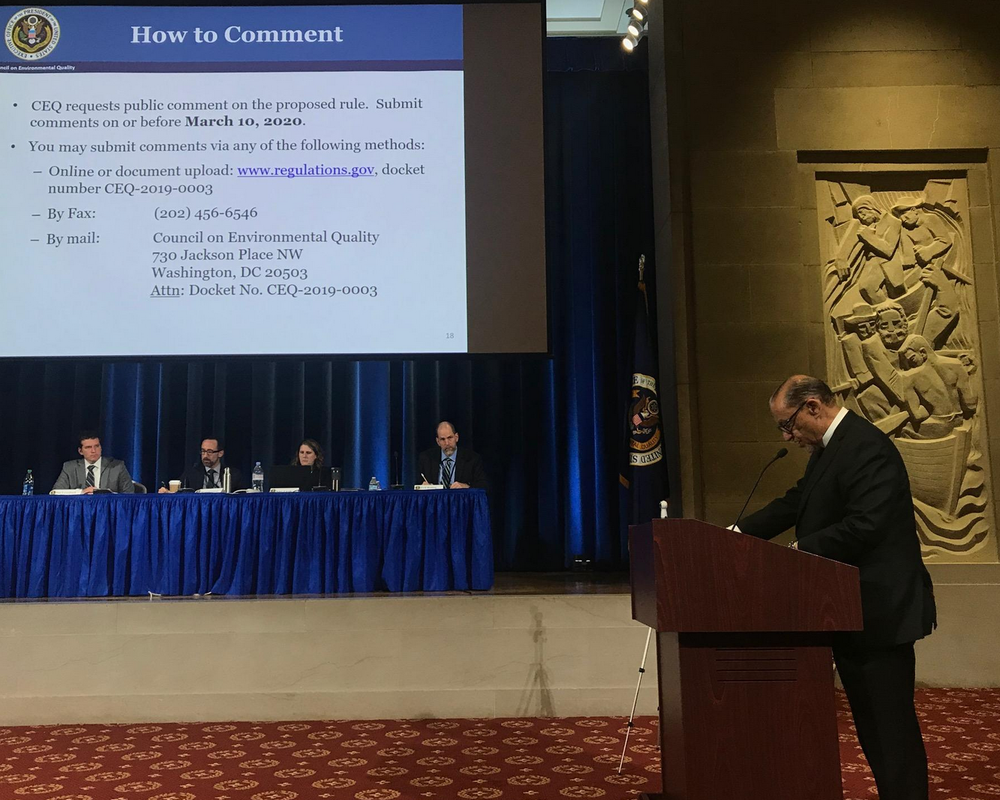
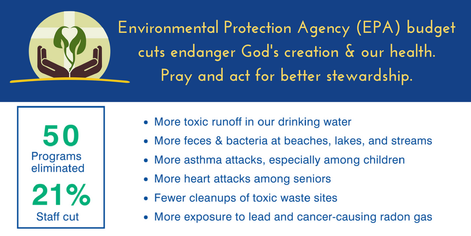
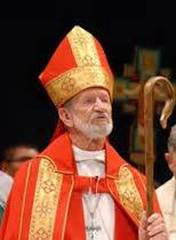
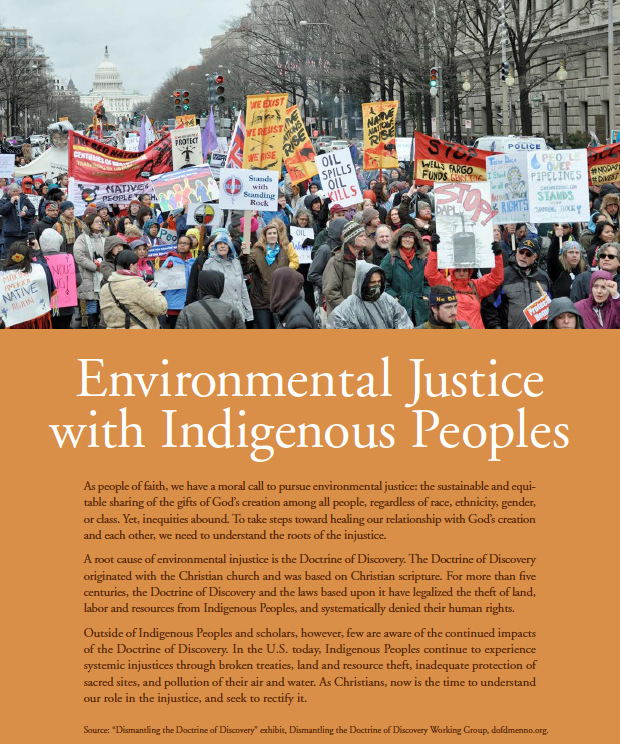
 RSS Feed
RSS Feed